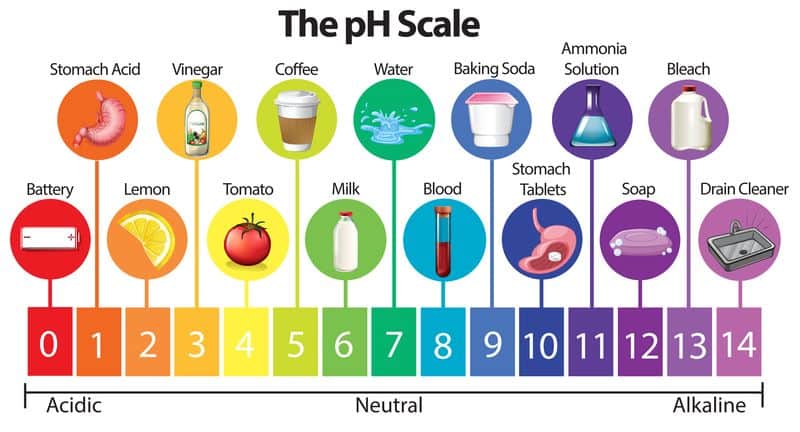I received a customer email asking about coffee acid as it relates to PH levels.
The email reads as;
I am writing for my daughter whose dentist has told her she has chalky teeth and can no longer drink coffee because of its acidity. I read your article on this subject. Could you tell me please what is the pH of your coffee, including the decaf product you sell? If it’s close to neutral I’ll buy her some.
My reply was;
Thanks for taking the time to email.
Firstly, its important to note the difference between acid, and acidity. Acidity is generally used as a term in describing the flavours of coffee, where acid is a scientific measurement on the PH Scale, with PH7 being neutral. Coffee generally sits around 5 on the PH scale, which is on the more neutral side compared to other beverages such as juice, beer, wine and softdrink.
So, coffee is slightly acid on the PH scale, but there are ways you can bring that even closer to neutral if you'd prefer. Techniques such as cold brewing, or any other slower process such as french press / plunger will reduce the acid level of your coffee. Also increasing the grind size will reduce the acid level, which both these processes benefit from. You would generally use a coarse ground coffee for cold brew and plunger coffee. Another thing to assist with moving the PH level is the roast level - a darker roast has a more neutral profile compared to a light roast.
Choosing an Arabica bean (all of ours are Arabica) vs a Robusta coffee bean will ensure you are selecting a bean on the more neutral side of the PH scale.
If you are making your coffee with an Espresso Machine, a lower brew temperature will reduce the acid level on the PH scale, however that also introduces some sour flavours to your coffee and it will be less acid on the PH scale (moving to the right on the scale).
Lastly, adding milk to your coffee will make your coffee less acid due to the calcium in the milk affecting the acid.
So, while no coffee is neutral on the PH scale, a high quality coffee bean, prepared specifically to reduce acid can be of benefit if you are chasing a lower acid number on the PH scale.
I recommend the Decaf Swiss water mountain process specifically due to the processing of the raw coffee being the only coffee that processes their coffee in a way that benefits the cause of increasing the PH number closer to neutral. While it is not intentional on the processors part, it works in your favour to move the PH number closer to Neutral naturally.
Link to Decaf Swiss Water Process https://www.baybeans.com.au/decaf-coffee-beans.html
The email reads as;
I am writing for my daughter whose dentist has told her she has chalky teeth and can no longer drink coffee because of its acidity. I read your article on this subject. Could you tell me please what is the pH of your coffee, including the decaf product you sell? If it’s close to neutral I’ll buy her some.
My reply was;
Thanks for taking the time to email.
Firstly, its important to note the difference between acid, and acidity. Acidity is generally used as a term in describing the flavours of coffee, where acid is a scientific measurement on the PH Scale, with PH7 being neutral. Coffee generally sits around 5 on the PH scale, which is on the more neutral side compared to other beverages such as juice, beer, wine and softdrink.
So, coffee is slightly acid on the PH scale, but there are ways you can bring that even closer to neutral if you'd prefer. Techniques such as cold brewing, or any other slower process such as french press / plunger will reduce the acid level of your coffee. Also increasing the grind size will reduce the acid level, which both these processes benefit from. You would generally use a coarse ground coffee for cold brew and plunger coffee. Another thing to assist with moving the PH level is the roast level - a darker roast has a more neutral profile compared to a light roast.
Choosing an Arabica bean (all of ours are Arabica) vs a Robusta coffee bean will ensure you are selecting a bean on the more neutral side of the PH scale.
If you are making your coffee with an Espresso Machine, a lower brew temperature will reduce the acid level on the PH scale, however that also introduces some sour flavours to your coffee and it will be less acid on the PH scale (moving to the right on the scale).
Lastly, adding milk to your coffee will make your coffee less acid due to the calcium in the milk affecting the acid.
So, while no coffee is neutral on the PH scale, a high quality coffee bean, prepared specifically to reduce acid can be of benefit if you are chasing a lower acid number on the PH scale.
I recommend the Decaf Swiss water mountain process specifically due to the processing of the raw coffee being the only coffee that processes their coffee in a way that benefits the cause of increasing the PH number closer to neutral. While it is not intentional on the processors part, it works in your favour to move the PH number closer to Neutral naturally.
Link to Decaf Swiss Water Process https://www.baybeans.com.au/decaf-coffee-beans.html

 RSS Feed
RSS Feed
